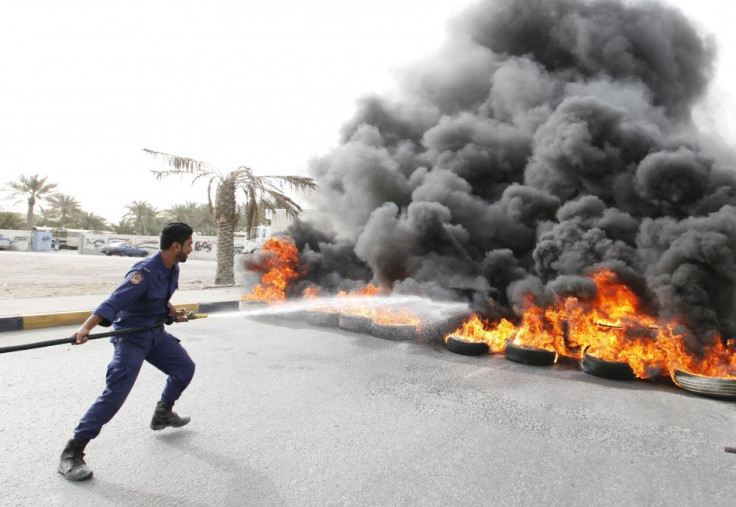Bahrain suspends main opposition group al-Wefaq

The Bahrain government on 14 June (Tuesday) suspended all political activities of the main Shia opposition group al-Wefaq on charges of violence, extremism and terrorism.
The state-run Bahrain News Agency (BNA) quoted the Justice Ministry as saying that it had suspended the opposition group, closed its offices and also frozen its assets.
The Justice Ministry's statement added that it had suspended the political society's work for not following the constitution and "activities that sow and divide the unity of citizens". The state-run media reported that al-Wefaq would not be allowed to operate until a verdict is issued on dissolving it.
Abdullah al-Shamlawi, a lawyer for the opposition political society, was quoted by the Associated Press as saying: "It was out of the blue. They say al-Wefaq is the sole danger to national security." He said the court notice had also included allegations about the group causing unrest during the 2011 protests.
Al-Shamlawi added the court has set a date for 6 October to decide if the party should be "liquidated" , which means the biggest opposition to Bahrain's government could be totally taken apart.
In May, an appeals court in Bahrain more than doubled the prison sentence for al-Wefaq's secretary general Sheikh Ali Salman. He was convicted in 2015 of inciting violence.
According to BBC, the group has lead pro-democracy demonstrations in the country since 2011. In February 2011, demonstrators came out to protest against the oppression of the Shia majority and to ask for greater political rights.
The Sunni government of Bahrain brought in troops from neighbouring gulf states to quash the dissent and reinstate order. Reports state that Bahrain has banned large gatherings and demonstrations that are not authorised by the government. However, occasional scaled down protests still persist.
The suspension of the opposition also comes a day after the rearrest of human rights activist Nabeel Rajab by Bahrain's police. Rajab was previously pardoned by King Hamad bin Isa Al Khalifa over health concerns. Another activist, Zainab al Khawaja, recently left for Denmark after being released from prison over fears that she would be detained again.
On Monday (13 June), UN human rights commissioner Zeid Ra'ad al-Hussein said in a speech around 250 people had lost their Bahranian citizenship "because of their alleged disloyalty to the interests of the kingdom".
The US State Department on Tuesday issued a statement which read: "We are concerned this action against Al-Wefaq, as well as other recent decisions, including the detention yesterday of prominent human rights activist Nabeel Rajab and resentencing of Al Wefaq chairman Sheikh Ali Salman, will restrict freedom of expression."
It added: "As we have consistently maintained, peaceful criticism of the government plays a vital role in inclusive, pluralistic societies."
© Copyright IBTimes 2024. All rights reserved.





